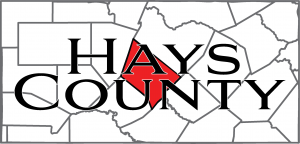By Ashley Sava
Closing the white zone of little-to-no water regulation could be affected by several bills moving through the Texas Legislature.
Expansion of the boundaries of the Barton Springs/Edwards Aquifer Conservation District to cover a section of unprotected groundwater in Hays County is one step closer to becoming law, according to a statement from Texas State Rep. Jason Isaac (R-Dripping Springs).
House Bill 3405, authored by Isaac, was approved 126 to 15 Friday by the Texas House of Representatives on a third reading.
Agricultural and residential wells would be exempted by HB 3405.
In March, Isaac filed the bill in response to Electro Purification’s plan to pump up to five million gallons of water per day from an unregulated portion of the Middle Trinity Aquifer.
But the Isaac’s bill and Texas Sen. Donna Campbell’s companion bill, SB 1440, are under heavy discussion by EP.
“We …are not opposed to the Buda-Goforth well project being included in a Ground Water District such as the Barton Springs Edwards Aquifer Conservation District,” EP’s statement said Sunday evening.
EP’s seven test wells are located off FM 3237 just west of FM 150.
One hurdle remains for HB 3405: the passage of SB 1440.
But, Senator Charles Perry (R-Lubbock), who chairs the Agriculture, Water & Rural Affairs Committee, appears to be blocking SB 1440, according to Isaac.
Isaac says the bills in the House and Senate regarding expansion of the BSEACD are considered local legislation.
“It is very unique when you have people that are playing in other member’s local business,” Isaac said in a recent on-air interview on AM 580 / 87.7 FM, a Lubbock radio talk show.
Isaac told the hosts of “The West Texas Drive” that EP is actively working to lobby senators against the Senate bill.
“The money they [EP] are spending on lobbyists is unbelievable,” he said.
He said Goforth SUD and the city of Buda are also lobbying against the senate bill.
Isaac disagrees with language that Perry is trying to add to Campbell’s bill. Isaac also said if a revised bill passes the Senate, he will try to clean up the language before the House votes on it.
Perry went on the same talk show saying it’s not just a local issue. He also discussed changes to Campbell’s bill that would allow science to be the determining factor, not emotions or political wrangling.
“Both sides of the issue believe the science should be the determining factor,” he said.
One host asked, “Isn’t this essentially grandfathering in Electro Purification?”
Perry said EP would be grandfathered in based on the same terms and conditions as other well owners.
Isaace said final passage of the bill guarantees protection for the Edwards and Trinity aquifers – without additional property taxes.
One point of contention for EP is the writing of the legislation.
“EP, the City of Buda and Goforth SUD were not invited to participate in the drafting of the original bill.”
Three weeks ago, according to the statement, “those left out of discussions finally had a chance to share their concerns.”
According to EP’s spokesperson John Hatch of Buda, several issues – production fees, pipeline ownership and mitigation requirements – were resolved and agreed upon. However, the company says it should be treated the same on its pipeline as a similar one going into Comal County.
EP’s statement said a similar bill put forth by Campbell, SB 963, would create a groundwater conservation district covering the Middle Trinity in Comal County, but would exempt New Braunfels’ $12 million pipeline project and give it a regular, not temporary, permit.
Hatch said, “There is no such treatment of the $15 million pipeline project … in the Hays County version [of Campbell’s bill]. We think this is wrong.”
Hatch said it’s a fairness issue.
“The bill’s similarities to the Hays County situation is almost identical (SB 1440),” the statement said. “Both cover the ‘white zones’. Both cover the Middle Trinity aquifer. Both have an existing project that allows a municipality to bring water via pipeline to the city.”
“Why should one city be rewarded and one group be punished?,” Hatch said. “We don’t ask for special treatment, only fair treatment.”
But opponents from Hays County Water Facts responded to a Facebook post by Hatch, saying the New Braunfels water utility negotiated being grandfathered in.
“In a nutshell, your argument that you’re not being treated fairly is not valid,” the post said. “You have just as much right to negotiate as N.B.U. does.”
What do these bills mean?
HB 3405
HB 3405 (Isaac) would expand the territory of the Barton Springs Edwards Aquifer Conservation District in Hays County and regulate wells of the Trinity Aquifer. That bill passed through the House on May 8, and now must pass through the Senate.
SB 1440
HB 3405 companion bill, SB 1440 (Campbell) would expand the territory of the Barton Springs Edwards Aquifer Conservation District in Hays County and regulate wells of the Trinity Aquifer. Isaac and Campbell filed legislation together to protect the unregulated areas of the aquifers.






